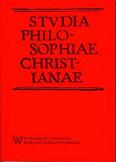Henry More i Isaac Newton o działaniu materii – kontekst neoplatoński
Henry More and Isaac Newton on the activity of matter – neoplatonic context
Author(s): Dariusz KucharskiSubject(s): History of Philosophy, Philosophy of Science, Ontology
Published by: Wydawnictwo Naukowe Uniwersytetu Kardynała Stefana Wyszyńskiego w Warszawie
Keywords: matter; motion; active principles; God; Neoplatonism; alchemy; More Henry; Newton Isaak
Summary/Abstract: One of the main challenges for 17th-century natural philosophers was to find an answer to the question of what makes matter active at all? The legacy of 'prime matter' and its pure potentiality was still alive, and the adoption of corpuscular or atomistic theories did not change much here, the conviction about the total passivity of bodies was still dominant. Their actions demanded some explanation that would be the equivalent of an Aristotelian, non-material and active form. It seems that one of the philosophical traditions that were sought for such an explanation was the emanational metaphysics of Plotinus. In seventeenth-century systems it underwent various modifications, but its main idea, indicating the active role of certain 'principles' or 'spirits' responsible for initiating any changes in matter and managing them in accordance with the Creator's intention, remained the foundation of the theories of matter. An example of such solutions are the systems of Henry More and his good acquaintance from Cambridge, Isaac Newton. In the first case there is no doubt about the fundamental influence of Neoplatonism, but in the second case historians' opinions are divided. Newton reaches in search of 'active principles' for alchemical research, with the hope of finding these principles not only when referring to philosophical speculations, but also to experimental methods. This difference, however, does not change the fact that both philosophers try to discover the mode of action of 'active spirits', hesitating between placing in the particles of matter a number of separate principles and pointing to only one acting universally principle that was just an extension of God's arm – More calls it the Spirit of Nature (Vicarious Power of God), and Newton sees that principle ultimately in Christ (Viceroy of God).
Journal: Studia Philosophiae Christianae
- Issue Year: 54/2018
- Issue No: 4
- Page Range: 5-26
- Page Count: 22
- Language: Polish

